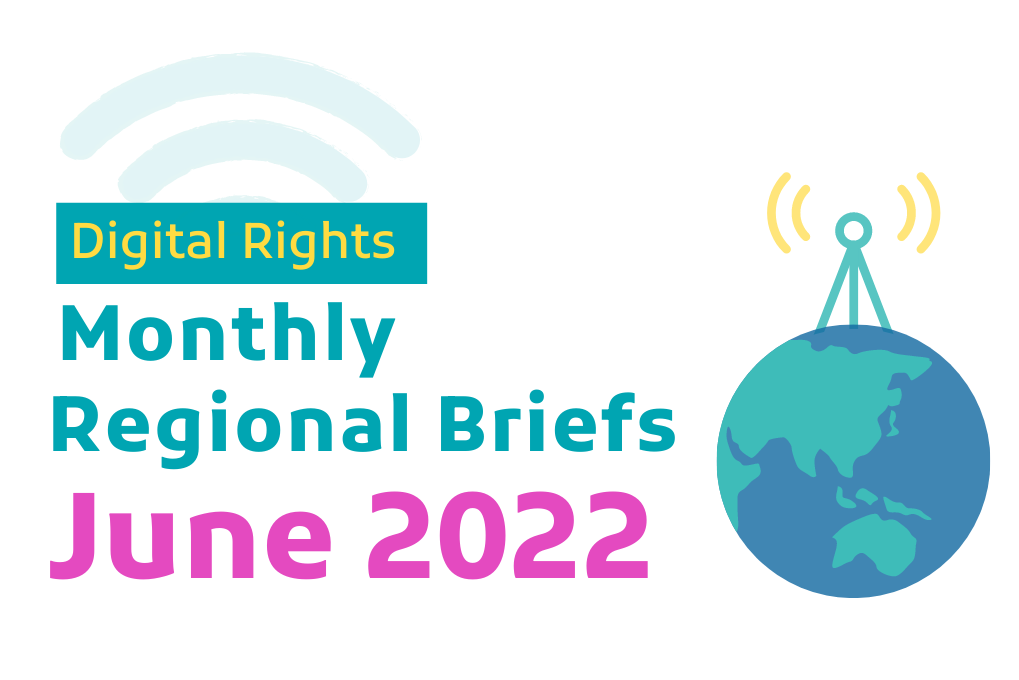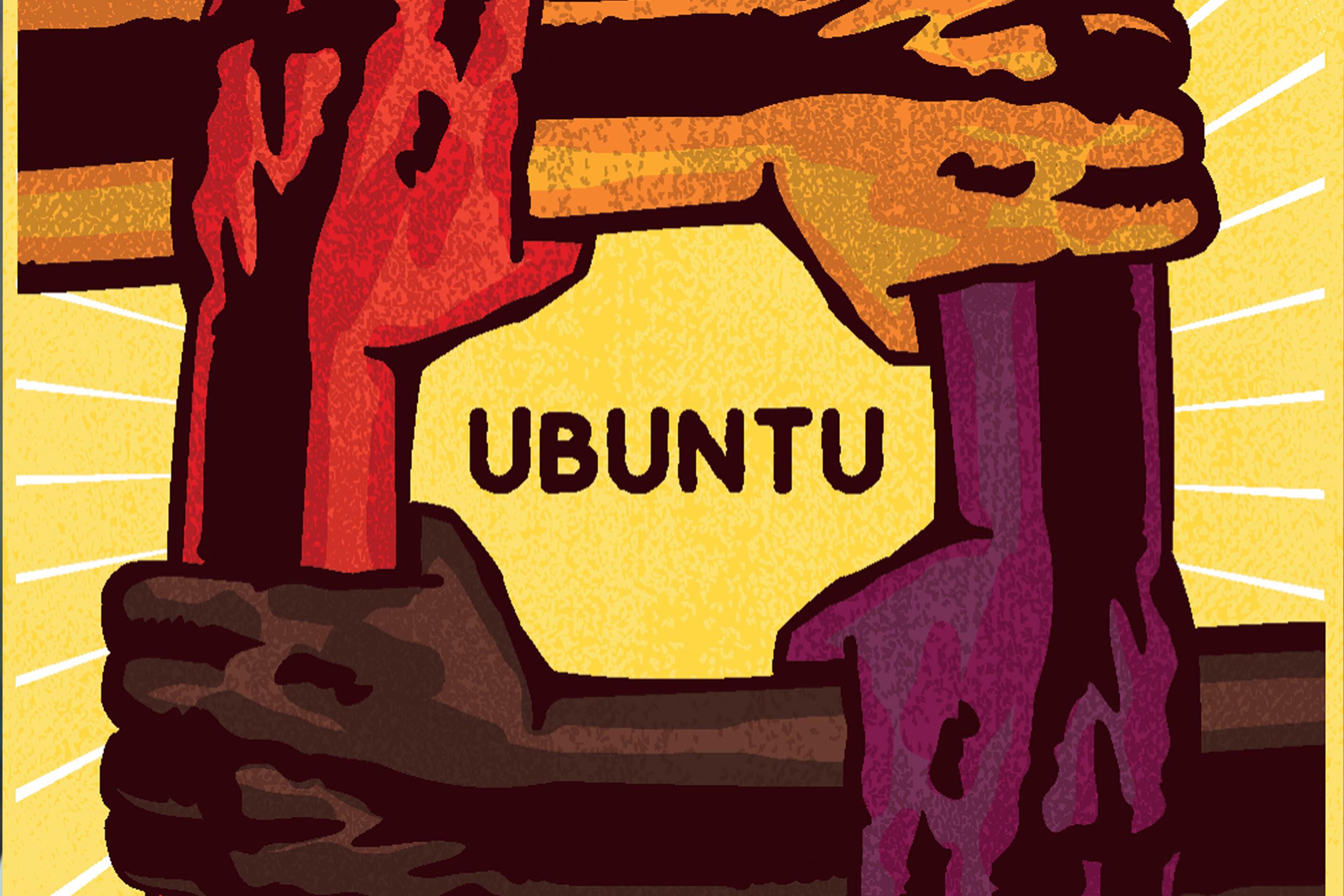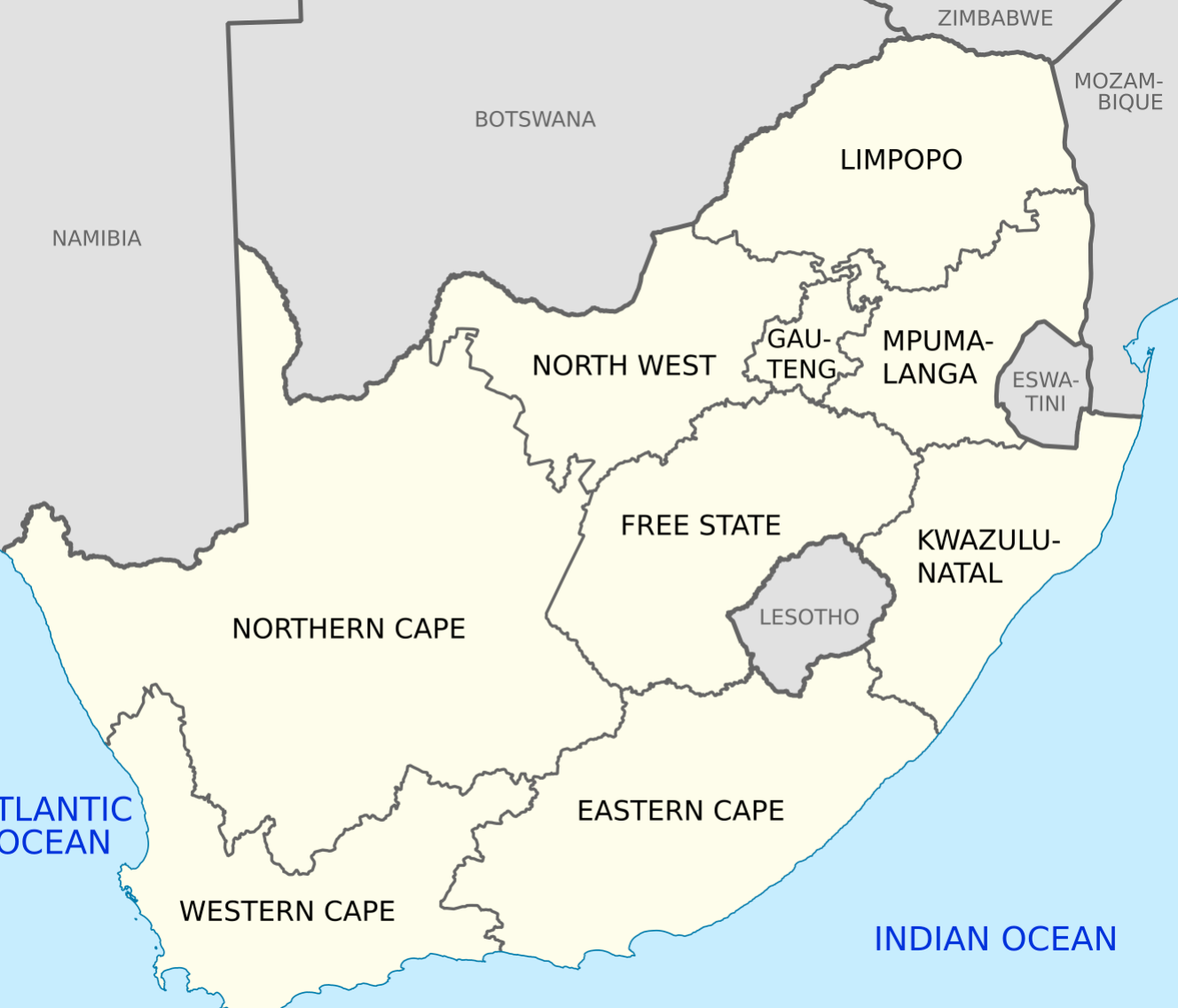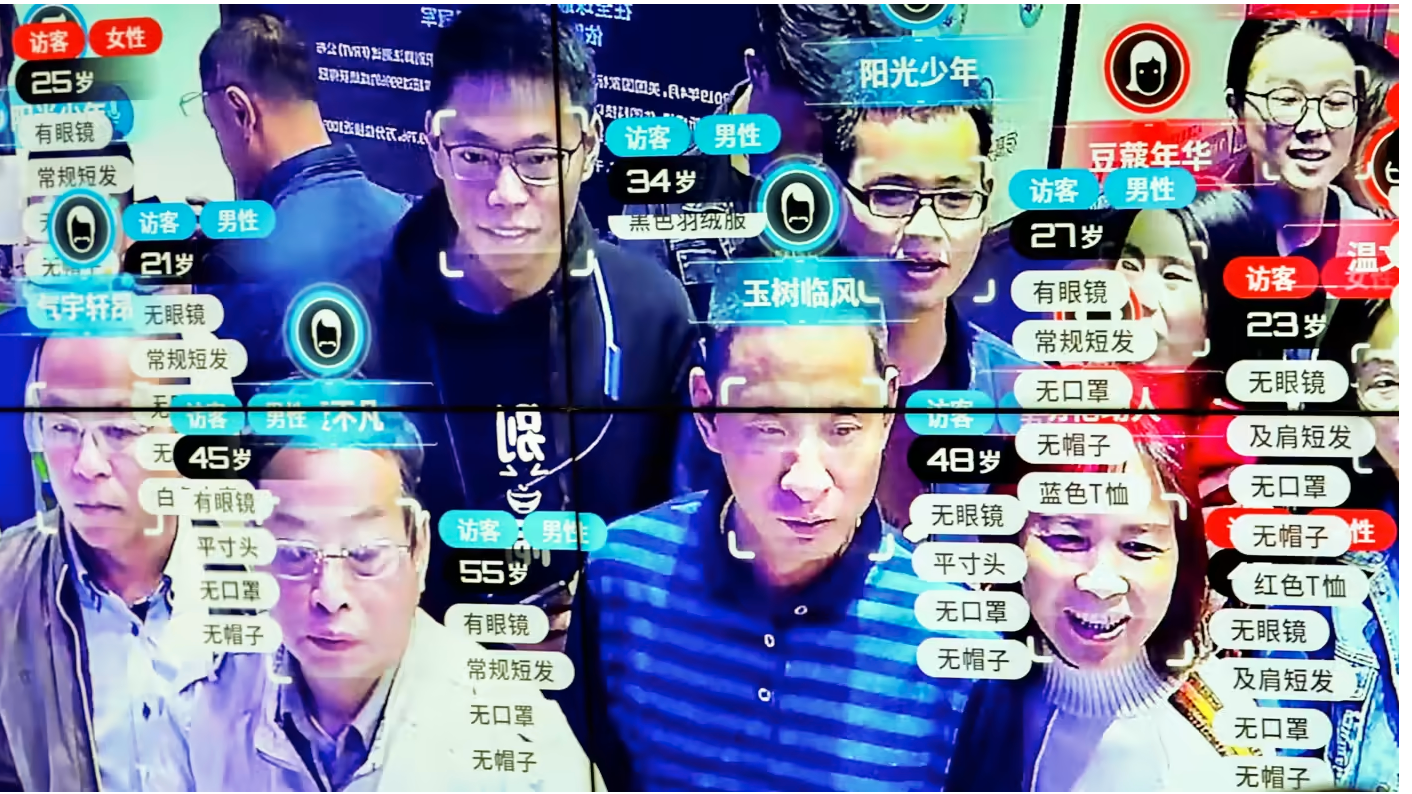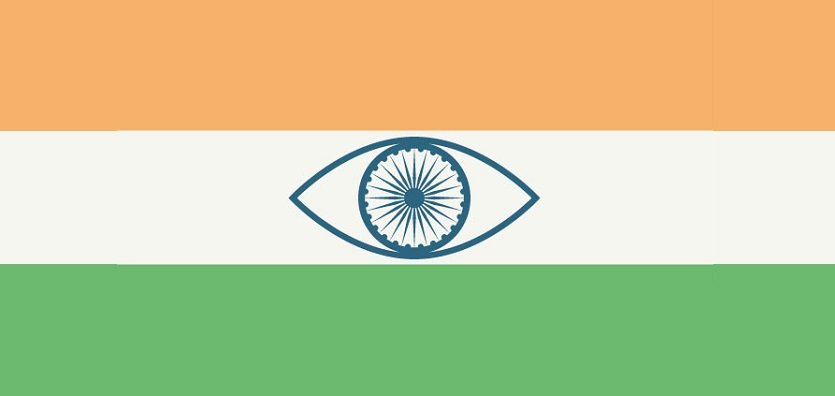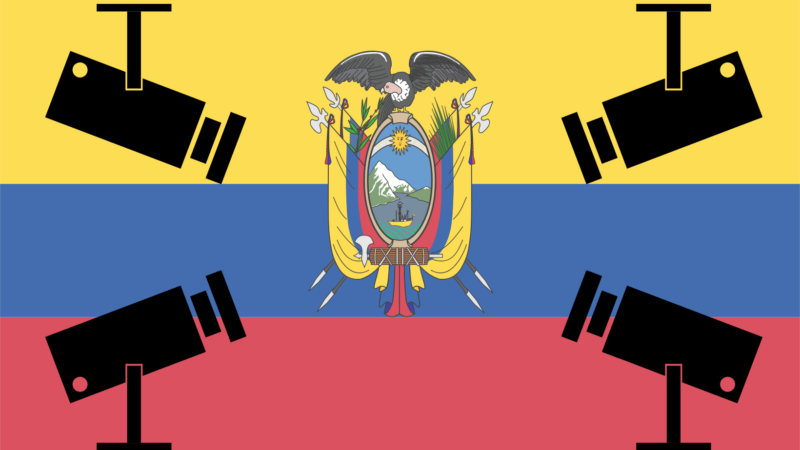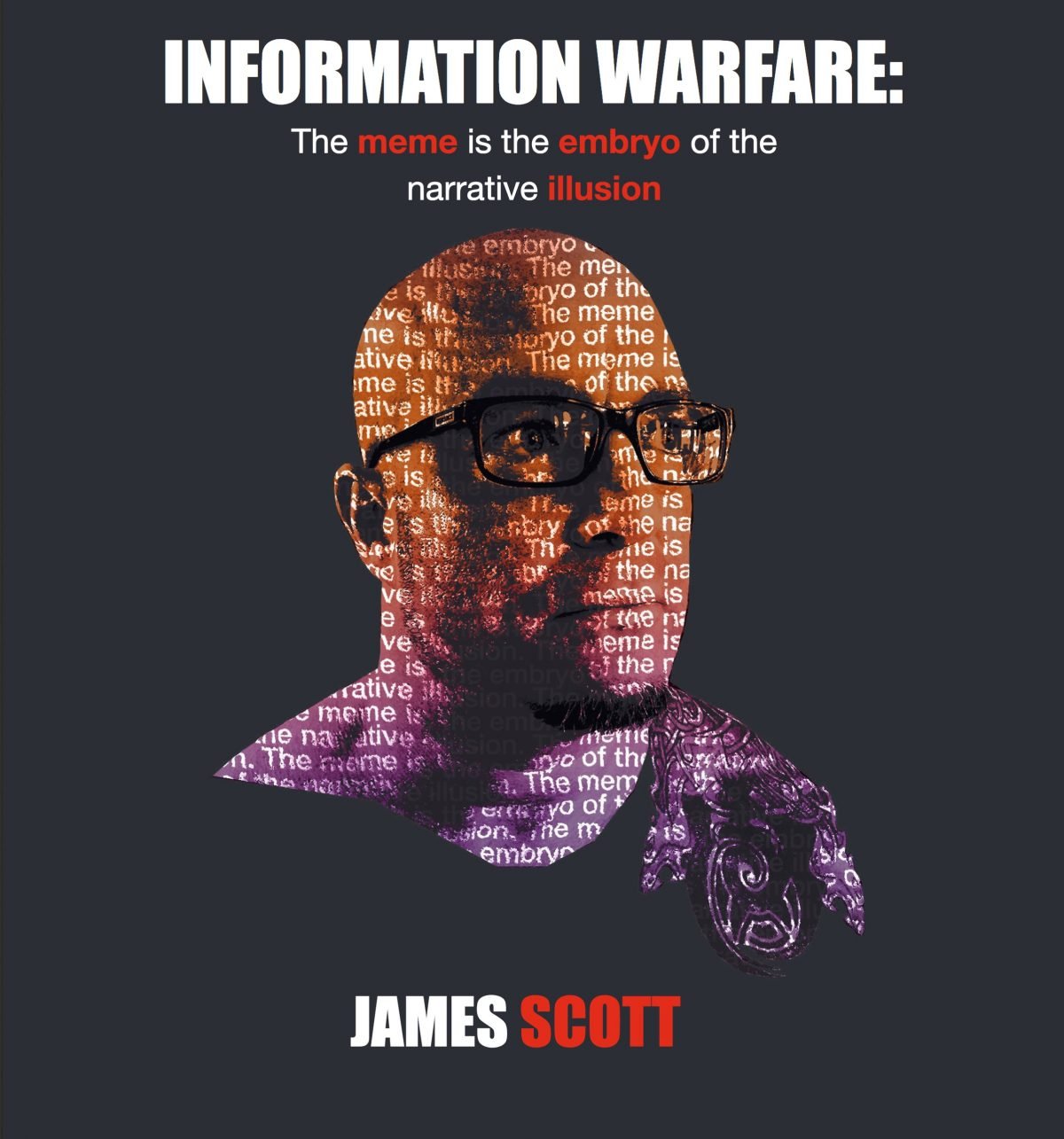June 2022 | Digital Rights Regional Briefs
Danae Tapia, Global Community Manager & Resident Hechicera
Our regional briefs for the month of June are out!
Below you can find the latest news on digital justice issues in the Latin America, MENA, Africa and Asia region. Each dispatch contains information on Current Opportunities for Digital Rights Defenders, Emerging Topics on Digital Justice, Community News, Regional News And Updates. This time our researchers covered a variety of issues affecting our communities, from the silent implementation of Whatsapp Pay as an imminent monopoly of financial data, to the work of meme specialists advocating for social justice.
Do you know about groups or individuals working on topics that should be highlighted in our briefs? Then do not hesitate to contact us! We are especially interested in issues that are not usually covered in the digital rights field in order to foster a wider and more heterogeneous space.
Besos,
Danae
Global Community Manager
Asia Regional Brief
Africa Regional Brief
Latin America Regional Brief
MENA Regional Brief
..
Africa Regional Brief
Current Opportunities for Digital Rights Defenders
Emerging Topics on Digital Justice in Africa
Design Biases: African Women In Artificial Intelligence
In a paper that explores the relationship between African women and Artificial Intelligence (AI), instances of AI bias against African women within health, culture, content development and moderation, surveillance to name a few, were highlighted.
Using an AI model generating images from prompts called DALL.E, one of the researchers received very disturbing blurry images of ‘African Women’. According to the researcher, the photos were generated from prompts such as ‘African women enjoying life’ and ‘African women in Artificial Intelligence’.
Within the domain of AI, the researcher who was further engaged in the research explained the emergence of the Ubuntu philosophy as a way to make AI governance more inclusive. Ubuntu essentially seeks a more equal and shared world by stressing on the acknowledgment of others’ humanity through empathy, community and collaboration. However, the question remains on whether it is a philosophy that could be applicable to addressing the biases in AI, especially when it has been constantly co-opted into patriarchal ‘brotherhood’.
Technology Platforms Continue to Facilitate Homophobia
Author: Mardiya Siba Yahaya
Mardiya Siba Yahaya is our Africa Community Lead. She is a feminist digital sociologist, researcher , learning designer and storyteller whose work examines the internet and its cultures from the margins of gender and location. She has a Global Challenges degree from the African Leadership University, was awarded the Mandela Rhodes Scholarship in 2021, and is currently awaiting her Masters Degree in Sociology from the University of the Witwatersrand.
Recent homophobic developments in Senegal exacerbated online hate speech and actions against LGBTQ people and Allies online and offline. The footballer Idrissa Gana Gueye triggered homophobic aggressions by refusing to engage in a match to commemorate the International Day Against Homophobia, Biphobia and Transphobia. His stance gave rise to hateful hashtags such as #Jesuisidrissaganagueye and #WeAreAllIdrissa. Homophobes online centre the ‘freedom of expression’ argument against feminists who demand the removal of the homophobic content. What is currently happening in Senegal is embedded in their religious, language and gendered context. The inability for platforms like Twitter or Facebook to actively address how their platform facilitate these forms of hate is partly because content moderation still struggles with the socio-political and cultural realities of minoritised communities in the Global South.
In solidarity with Senegalese LGBTQ communities and feminist allies, Feministing While African wrote this statement demanding social media platforms to address the on-going homophobia within the space.
The Different Threats Against Human Rights Communities
While digital security conversations and training continue to improve, digital rights community members highlight that a challenge exists when people choose between security and convenience. The former requires intentional steps, and training while the latter, which is convenience, is a much easier decision. Oftentimes, when people choose convenience it poses a threat to the work of digital security practitioners who have to continually educate and support people to stay safe online with limited resources.
On the other hand, many people struggle to make a direct correlation between their physical safety and the benefits of digital security. For example, to them digital security may not address on-ground threats against Human Rights Defenders (HRDs). In South Africa, a HRD was murdered in their home and the defender communities believe they were targeted by the state. The community believes that although they may be able to address certain digital security issues, state powers are in the position to pose significant threats to their lives. As such, the question of ‘how do we address on-ground violence and state-facilitated threats?’ remains unanswered
Is Digital Rights a ‘Privilege’?
The concept and practice of digital rights continues to be undermined as a nice to have rather than a human right, and necessity. A digital right community member explained that in Africa, specifically in South Africa, organizations that focus on social equity, labor and housing rights are prefered over digital security, access and inclusion. The trivialisation of the digital space as ‘not real’, plays a role in the perceptions surrounding digital rights as a privilege for many. Similarly, the economic and social realities of many Africans influence how they view the fight against technology-facilitated violence and biases.
Community News in Africa
In May, 2022, two members within the African digital justice community shared that they were working on repealing the mandate in the Gauteng Province of South Africa that required protesters to apply and pay to peacefully protest. This month the court ruled that the protest fees and application in the province was unconstitutional, as such people can peacefully protest without having to engage in the arduous processing requirement or pay fees for it. More information on this proceeding can be found here.
In addition they shared that there is more work being done to protect Whistleblowers and HRDs in the region. It is important to note that not every intervention and initiative will be successful given the realities of defenders on the ground and the power of the state.
Regional Update
#BBCEyeInvestigations went undercover to expose how a Chinese video-making industry is exploiting African children to produce racist videos
In another case of technology facilitating racism, abuse and exploitation, a video of African children reciting racist Chinese words went viral after it was released on a Chinese social media account called “Jokes about Black People Club”. The investigations go further to uncover a booming online industry of African children’s videos on Chinese social media and advertising channels. On further enquiry, the journalist found that some of these videos were based in a village in Malawi and the children who were in these videos were being physically and verbally abused by the principal creator of these videos.
The ICT Practitioners bill passed in Kenya
This recently passed bill in Kenya requires practitioners in the technology sector to register for a practicing certificate with the government. The bill does not clearly state how the decisions to provide practicing certificates will be made. The May regional brief highlighted the existing skill gap in the technology rights space, thus this bill only creates an additional barrier to expanding the skills and opportunities in the technology sector in Kenya.
Tiktok Fueling Disinformation in Upcoming Kenyan Election
A study by Mozilla foundation found that Tiktok is facilitating a disinformation campaign in the upcoming elections in Kenya. Some of the harmful content includes videos spreading false claims about the candidates and sharing hateful/threatening content against some ethnic communities. Kenya’s history of post-election violence makes the disinformation campaign much more concerning and the research shows that such content continues to be amplified on the platform. Current moderation is ineffective due to most moderators lacking the language and contextual knowledge to identify some of the disinformation videos as harmful.
Bolt drivers in Nigeria are illicitly selling their accounts, putting passengers at risk
In the past few months, passengers shared complaints of violent threats they face when using Bolt, the ride-share app. This article delves into the issue further including how hosome drivers use Facebook groups to sell their accounts to unknown people, increasing the violence passengers are susceptible to by using this service.
Nigeria’s internet regulator releases draft to regulate Google, Facebook, TikTok and others platforms
Feminist technologists, digital rights defender and technology policy practioners have called for the regulation of Big Tech Companies, which the Nigerian government has taken a step towards. Yet, the question remains on whether Nigeria’s regulation of Big Tech is in the interest of human rights protection or is a state’s tactic to further limit the access and freedom of expression of citizens. This past year, the government blocked Twitter accusing the platform for facilitating ‘harmful’ content and disinformation. While it is true that Twitter is a platform that creates space for online violence, the Nigerian government's use of these terms were in an attempt to stifle young people’s free speech and right to protest. Blocking Twitter was the Nigerian state’s action against protests.
Facing violence, migrants in South Africa find refuge in social media
Over the past few months, xenophobic and nationalist groups in South Africa used social media to mobilise their violent campaigns through the hashtag #OperationDudula and #PutSouthAfricansFirst. In this period, migrant groups relied on messaging apps and conferencing platforms to create nurturing environments for each other. Spaces such as Telegram and Whatsapp are used by migrants to share updates on potential threats and support each other financially and emotionally during xenophobic attacks against them.
Not an update but a great read:Until the Machine Learns Your Language, You Stay Put by Berhan Taye
...
Author: Astha Rajvanshi
Astha Rajvanshi is an independent journalist based in Mumbai, where she writes on gender, marginalized communities, and human rights across India and South Asia. Recently, she was awarded the Matthew Power Literary Reporting Award by New York University. As part of her reporting in India, she is currently examining tech surveillance and internet shutdowns. Previously, she was a Fellow for the Institute of Current World Affairs in Washington DC. She has also worked for the New York Times Magazine and Reuters in New York. She was born in New Delhi and raised in Sydney as a proud daughter of immigrants.
Asia Regional Brief
Current Opportunities for Digital Rights Defenders in Asia
The Internet Freedom Foundation is looking for a Policy Intern to assist the team with its Parliamentary engagement & transparency vertical. Apply here
EngageMedia is looking for Thai and Khmer localizers to apply for its Digital Security Localization Fellowship. They are hoping to support and engage with civil society organisations and community groups with digital security resources in the Thai and Khmer languages through the fellowship. Apply here
Emerging Topics on Digital Justice in Asia
How the police in India and China is increasingly using hacking and surveillance against citizens
Around the world, the use of hacking tools and surveillance techniques has increased by police authorities to store citizen data and track personal devices to identify and target individuals. This month, International media reports revealed new, staggering findings from China and India.
According to a new Times Investigation, law enforcement agencies in China are collecting personal data on an unprecedented scale. Reporters spent over a year combing through government bidding documents shared exclusively by the digital magazine ChinaFile. In India, a new report in Wired connects the police with planting false evidence on the computers of targets they later arrested and jailed. These findings show how authorities are designing new systems to maximize state control over a person’s identity, activities and social connections.
The four major takeaways from The Times’ Investigation into China’s Expanding Surveillance State:
With more than half of the world’s nearly one billion surveillance cameras in China, the investigation found that Chinese police analyze human behaviors to ensure facial recognition cameras capture as much activity as possible by strategically choosing publicly frequented locations.
The police also use phone trackers like WiFi sniffers and IMSI catchers to link people’s digital lives to their physical movements. Over the past seven years, a dramatic expansion of this technology by the Chinese authorities has been underway, with phone trackers being used in all 31 of mainland China’s provinces and regions today (the technology particularly surveils Uyghur ethnic minorities).
The police are also collecting DNA, iris scans and voice prints through facial recognition technology which is analyzed by software and added to a database, which they boast will help pinpoint suspects faster.
All these data points will be connected to build comprehensive profiles for citizens, which will be accessible to the government.
While the Chinese Ministry of Public Security has not commented on these findings, digital security experts have raised concerns that these tools are already in use by Chinese police and officials to monitor and target individuals.
In India, Questions Raised Over Validity of Evidence Pulled from a Computer Hacked by Law Enforcement
In India, forensic analysts linked unidentified hackers who fabricated the evidence against two activists arrested in 2018, along with 13 others who faced terrorism charges, with a broader hacking operation that targeted hundreds of individuals with phishing emails, spyware and hacking. In the latest report, the hacking campaign was connected to the police force in the city of Pune, the same agency that arrested the activists on the basis of the fabricated evidence.
The report raised questions about the validity of any evidence pulled from a computer hacked by a law enforcement operation. Digital rights activists in India are urging the Indian parliament and the judiciary to immediately investigate the use of illegal hacking and surveillance measures and take steps to ensure accountability of government and law enforcement agencies. They say that India needs surveillance reform to protect citizens against the use of such technology.
Both reports present alarming findings into the dangers of hacking tools and data tracking by law enforcement agencies, raising questions about digital safety and human rights–in both authoritarian regimes and democracies–and the impunity afforded to state authorities around citizen arrests.
While alarming, these findings are now new to digital rights activists, who have been thinking about alternatives to surveillance state and hacking programs. This policy brief by the Center for Security and Emerging Technology examines major Chinese surveillance programs and makes suggestions (albeit to the American government) on how to tackle such challenges. The suggestions include reducing its own extent of harm on human rights through technology and by starting government-to-government dialogue to help curb surveillance through export controls.
This article in the Free Press Journal spells out some of the mass surveillance projects deployed by the government of India, while this paper by the Observer Researcher Foundation argues for new regulatory framework that views the protection of privacy and information as a facet of national security – arguing for legislation that puts privacy-respecting practices in place rather than weakening civil liberties.
Read more here:
The New York Times’ Investigation: “China’s Surveillance State Is Growing. These Documents Reveal How.”
Wired report: “Police Linked to Hacking Campaign to Frame Indian Activists.”
Community News in Asia
The Digital Patrakar Defense Clinic, an initiative by the Internet Freedom Foundation in India, has put together a guide on how journalists can protect confidential journalistic sources to preserve a free press and the free flow of information to the public. The guide looks at how Indian laws & policies are faring for the protection of sources, as well as how they have kept up with the rise of social media.
The International Center for Not-for-profit Law is conducting a study on Online Gender-Based Violence (OGBV) and its Impact on the Civic Freedoms of Women Human Rights Defenders (WHRDs) across six countries in the Indo-Pacific, with a focus on Cambodia, India, Malaysia, Nepal, Pakistan, and Thailand. Researchers Shraddha Mahilkar and Tanisha Ranjit are hoping to understand the experiences of WHRDs with OGBV through a survey that will take 10-15 minutes to complete. You can assist them by filling out the survey filling out here.
A new report by New York University’s Stern Center highlights how harmful content on YouTube evades scrutiny because it is more difficult and expensive to analyse a large volume of videos than it is to search for words or phrases. The report specifically highlights the targeting of Muslims in India “by backers of the ruling Bharatiya Janata Party and other right-leaning Hindu nationalist groups”. According to experts, a possible reason for the increased complexity in monitoring content in India is due to the tendency of creators to use multiple languages, which makes it heavily contextual and technically more challenging. The study's authors recommend that YouTube disclose more information, provide greater access to researchers on how it works, and work closely with civil society and news organizations.They also highlight the need to expand andimprove human review of ‘potentially harmful content’. Read media coverage of the report here
Regional News & Updates in Asia
Photography by Tashiya de Mel for Rest Of World.
In Sri Lanka, a team of online fact-checkers are investigating the country’s ongoing crisis
Watchdog is a research collective based in Colombo that uses fact-checking and open source intelligence (OSINT) methods to investigate Sri Lanka’s ongoing crisis. As part of its work, the chief executive and his 12-member team of coders, journalists, economists, and students track, time stamp, geolocate, and document videos of protests shared online. Watchdog’s protest tracker has emerged as the most comprehensive online archive of the historic events unfolding in Sri Lanka. Its data set, which comprises 597 different protests and 49 conflicts, has been used by global news organizations to demonstrate the extent of public pushback.
Read more here: Meet the fact-checkers decoding Sri Lanka’s meltdown, Rest of World.Myanmar: Internet shutdowns shrouding torchings and killings
The Myanmar military has systematically imposed internet shutdowns with internet, mobile, and landline connections cut off for months in an impending sign of a military attack. The shutdowns have fortified the military’s “Four Cuts” strategy — a military campaign to indiscriminately attack dissidents deemed to support the raging popular resistance movement on the ground.
Read Article19’s latest statement on the issue here:
Read Access Now’s coverage hereMyanmar also aims to criminalize VPNs
At the beginning of the year, the military junta released the draft of its infamous Cybersecurity Law. Among other directives, it will punish people using VPNs with up to 3-year prison sentences. Read more here: Myanmar’s ‘digital dictatorship’ aims to criminalize VPNs, TechRadar Pro
The Indian government continues to target VPNs to through new legislation to collect data
A new legislation in India goes into effect on June 27, 2022, forcing data-handling companies, including VPNs, to collect their customers’ personal information and store the data for up to five years to be accessible to government officials. As a result, various VPN companies including ExpressVPN, SurfShark, and most recently, Private Internet Access (PIA), have begun removing their servers located in India.
Explainers on how the legislation impacts internet users:The world’s biggest surveillance company could be sanctioned for aiding the Chinese government’s human rights violations in Xinjiang
The Chinese company Hikvision’s products can be found anywhere from police surveillance systems to baby monitors in more than 190 countries due to its ability to make decent-quality products at cheap prices, as well as its ties with the Chinese state. The firm helped build China’s massive police surveillance system and tailored it to oppress the Muslim minority groups in Xinjiang. As a result, the US government has imposed several sanctions over the last three years, and this year, the US Treasury is reportedly considering adding Hikvision to the Specially Designated Nationals and Blocked Persons (SDN) List, usually reserved for countries like North Korea or Iran.
Read more: The world’s biggest surveillance company you’ve never heard of, MIT Technology Review
Author: Úrsula Schüler
Úrsula Schüler was born and raised in Chile, South America, where she studied Journalism and worked in media and various organizations for seven years. Spanish is her first language and years ago she was a student representative in high school and her university. After this, as a journalist, she reported two presidential and legislative elections for national media in Chile. She worked in newspapers, a television channel website, and internal communication for universities and companies. Currently, she is studying a postgraduate program in Digital Media Marketing, in Toronto, Canada.
LATAM Regional Brief
Current Opportunities for Digital Rights Defenders in LATAM
2022 LACNIC edition of Leaders 2.0 continues to provide key support to local internet governance communities to research selected topics under its scholarship and mentorship format. Deadline: July 10.
Derechos digitales is inviting organizations or activists without a formal affiliation working locally on digital rights issues in Latin America to pre-register and submit their applications to the Rapid Response Fund for the protection of digital rights in Latin America (FRR). Pre-register here, and make project proposals here.
Bertha Challenge 2023 is open for applications from activists, investigative journalists and lawyers to spend a year working on one pressing social justice challenge and to deliver a body of work at the end of the year. This year the focus is on food systems and environmental devastation.
Emerging Topics on Digital Justice in LATAM
A New Colonialism: “Bitcoin Cities” in Central América
Image’s source: Ivan Radic’s Flickr.
Salvador’s President Nayib Bukele announced in November 2021 that the territory around the Conchagua volcano would become a new “Bitcoin City”. El Salvador is the only country in which bitcoin is a legal tender and the project pretends to build an entire city based on the largest cryptocurrency by market value. The city will have no income, property, capital gains or payroll taxes.
Bukele also said El Salvador plans on issuing a $1 billion “bitcoin bond” or “volcano bond” (in reference to the area). Of that amount, $500 million will be used to help construct needed energy and bitcoin mining infrastructure and $500 million to buy more bitcoin.
But this is not the only project in the region. In recent years, a new class of crypto investors have bold plans to rebuild society from scratch in this regard. For example, “Bitcoin Lake” in Guatemala is a tourist destination that became a pioneer in accepting cryptocurrency. Another example is called "Honduras Prospera," a zone on a tourist-centric island on Honduras' Caribbean coast that also adopted cryptocurrencies.
This digital trend looks exciting for some people, but at the same time presents huge challenges about human rights. These “Bitcoin cities” experiment on a big scale with a criticized and not regulated digital currency, which has already shown speculative bubble signs. The regions where the crypto coins are running have received foreign investors who change the local economy features, don’t need to follow local laws, and don’t pay taxes. In fact, there is already a case that calls to reflect about the impact of these proposals in the central american countries sovereignty - “A crypto-libertarian paradise just lost an existential battle with Honduras.”
Check this article about how “their pet projects risk repeating the Latin American region's long history of corporate colonialism”.
“Whatsapp Pay: The next frontier for the expansion of data monopoly”
Coding Rights analyzed the pilot implementation of Whatsapp Pay in Brazil. After India, the country is the second in the world to implement this service. The study highlights the possibilities of a new “data colonialism”: “Beyond data protection debates, this case is fascinating because it (finally) raised the attention of Brazilian competition authorities about Facebook (Meta)’s monopolistic position. It exposed the need for cooperation within regulatory authorities on data protection, competition law and consumer rights,” the researchers state.
Fairwork in Latin America gig economy
Have you ordered food by UberEats or have you taken a commute on Cabify? Do you know how it is to be an express driver? Fairwork is an action-research project that evaluates conditions of digital labor platforms in the gig economy, and scores individual platforms on how well, or how poorly, they perform. This year they are launching several studies about Latin American countries. Come and review what these applications scored in Argentina, Brazil, Chile, Ecuador, and Colombia.
Central America Under Video Surveillance
Central America faces the excessive use of massive video surveillance systems. However, they have very little influence on local security, generating a loss of privacy for the population. The “Centroamérica Videovigilada” (“Central America under Video Surveillance” in Spanish) study reflects the situation in the region. The project was developed by IPANDETEC and was financed by INDELA.
“Cyber-police” and state “techno-solutionism” in Mexico
"Digital Violence in Mexico: The State versus Civil Society" is a published anthology that explores the growing use of digital surveillance for oppressive practices and analyzes the impact of this phenomenon on human rights. Alex Argüelles, member of Mozilla, has contributed to this anthology.
Community News in LATAM
Brazilian organizations launched campaign against facial recognition
#TireMeuRostoDaSuaMira (“Get my face out of your target” in Portuguese) is the new Brazilian campaign which calls for a total ban on the use of digital facial recognition technologies in public security in Brazil. The campaign was launched on May 31st for more than 30 organizations and it has been running during June.
According to the organizations, this technology is perpetuating discrimination to the black and LGBTQIA+ population, and the criminalization of poverty. #TireMeuRostoDaSuaMira proposes debates and actions to stop the use of these technologies by Brazilian Police without the users consent.
Strengthening networks and Digital Rights in Latin America
The second edition of "Human rights, social justice and technologies: strengthening networks in Latin America" was held on June 28th, 29th and 30th. The event was organized by Derechos Digitales (Digital Rights in Spanish) and aimed to learn about and discuss relevant human rights issues in technological environments, from a Latin American perspective.
Latin America Meetup hosted by TCU
The Latin America Meet Up hosted by TCU was held on the 22th of June. You can read the notes of the meetup here.
Regional News and Updates in LATAM
Image’s source: Global Voices.
Criminalization and surveillance technology against activists in Ecuador
Among the demonstrations started in Ecuador the past June 13th, activists and civil organizations rejected the violent repression, the use of surveillance technologies, and arbitrary arrests against human rights and nature defenders.
Latin American organizations signed a public statement against this situation and demanded to stop the use that has been given to the Integrated Security Service ECU911. The latter is a powerful institution dependent on the Presidency of the Republic and would concentrate video surveillance systems deployed at the national level.
“An unholy coalition torpedoes social media reform legislation in Brazil”
President Jair Bolsonaro manipulated his allies in the Brazilian National Congress and managed to put brakes on an omnibus bill. This bill would establish moderation and transparency requirements for several major internet platforms and would require payment for news content. At the same time, big tech openly formed a lobby to try to undermine this bill.
In this way, Bolsonaro, Google and Facebook became accidental allies fighting on the same side to defeat Big Tech regulation in Brazil. Check the news here.
Historic election in Colombia and technological audit to the process
For the first time in its history, Colombia will have a leftist president - Gustavo Petro. Next to him, Francia Márquez won the vice presidency and she will be the first Afro-descent female vice president in Colombian history.
Karisma Foundation analyzed the electoral process, from a digital rights perspective. “When we elect a candidate democratically, we do not want a black box at the polls, we want a transparent and comprehensive process. We put the magnifying glass to the vote counting software for the elections in Colombia,” they wrote. You can read the first round of the report here.
Telefónica recognized interventions of mobile phones in Venezuela
Requests from Venezuela authorities to Telefónica - Spanish telephone company that operates in Venezuela - to intervene in Venezuelan mobile phones increased by four times. In 2017 there were 234,932 authorities’ intervention requests to Telefónica. In 2021, there were 861,004 interventions. Read the details in the recently published transparency report of the Spanish telecommunications operator.
According to the document, in 2021, Telefónica intercepted the communications of more than 20% of its users in Venezuela. These interventions comprised “tapping” calls, SMS, and giving the location of people. Read here all the impact on Venezuelan privacy.
Huge electoral data leak in Chile is still without clear responsibilities
Despite the huge leak of electoral personal data in Chile, the Chilean Electoral Service (Servel) only recognized the “error”. It still does not identify a responsible party.
Ciper Chile, an investigative journalist center, writes that the difficulty to demand responsibility for this massive leak is due to the board’s political placements.The five members of the Servel Board of Directors come from different political parties and cultivate several links with political powers, which are overseen by Servel.
...
Author: Islam al Khatib
Islam al Khatib is a Palestinian feminist born and raised in Beirut. She researches feminism(s), hegemonies in the 'technocene', ecologies, and grief. She holds BAs in Political Science and Philosophy from the Lebanese University (LU). She is currently pursuing a masters in Gender, Media and Culture at Goldsmiths, University of London.
MENA Regional Brief
Current Opportunities for Digital Rights Defenders in MENA
Bread & Net 2022 / Deadline July 10: Bread&Net is an annual unconference that promotes and defends digital rights across Arabic speaking countries. They are currently looking for folks to submit sessions - deadline to submit a proposal is July 10.
In May, Team CommUNITY hosted a Glitter Meetup with Moussa Saleh, B&N’s General Coordinator, who provided us with so many tips and recommendations regarding submitting proposals such as writing a clear structured proposal which includes clear-cut objectives and aims.Keep an eye on the Bread&Net website and social media channels to follow up when the registration for attendees is open.
Beirut DC Impact Fellowship / Deadline July 10:This fellowship is open to Arab filmmakers, activists and producers. The fellowship aims to train the Arab region's first generation of dedicated professional Impact Producers to harness the power of film for achieving social change.
Emerging Topics on Digital Justice in MENA
Memes as a tool for digital justice? An Interview with Idil Galip from the Memes Studies Research Network
This month, we spoke with Idil Galip of the Memes Studies Research Network (MSRN) about her work with MSRN, her motivation, and how digital rights defenders can best use memes for digital justice. Her work is informed by ethnographic methods and is focused on digital culture and labour. Currently, she is mapping the creative and digital labour that goes into the creation, dissemination, and monetisation of internet memes. She also runs MSRN.
In recent years, studies of memes as tools of dissent and a form of knowledge production have been dominating the academic digital studies sphere. Memes have become the main internet common language that relies heavily on humor and virality to get ideas across. MSRN itself is a global and interdisciplinary research network for meme scholars. Its goal is to bring people together and foster discussion about memes from a variety of academic fields, methodological practices, and theoretical perspectives. The network's main goal is to collaboratively establish a meme studies canon and provide researchers with an index of resources that center memes as their primary object of interest.
The MSRN has finally established its own index, titled the MSRN Index, which is going to be a digital and archival collaborative project that collects and presents academic literature about the use, spread and impact of internet memes. The MSRN index was modeled after the Cyberfeminism Index facilitated by Mindy Seu, designer, educator, and researcher based in New York City.
Why memes?
Galip says that it was during the pandemic where she felt the most isolated and away from her academic and digital rights activists peers. She said: “ Feeling disconnected. I decided to make my bibliography a reading list. It was a collection of material that I thought would be useful for people to have access to it.” Galip’s reading list then went viral, and many people reached out to engage with the work, and to also recommend other readings. Galip then invited them to co-edit the list with her, and the idea kept expanding until they decided to run a discord server, and from there, a network was born.
Galip says that “internet memes are the building blocks of digital culture and they’re very cheap to make. The learning curve is immediate, you can get into it quickly and in a couple of hours you can express something, even if it was too complex, in a meme. It’s being used by everyone, not just by everyday people but also top-down as well. It is used by the government and corporations to set political discourse and to cause harm. It’s also been used as a tool to create community and solidarity and some form of resistance. It travels very widely and it is very fast. It can be very anonymous. It’s like modern day graffiti or propaganda. It can occupy a bunch of different roles. It’s now become, on its own, the basis of digital culture everywhere”.
Digital Rights Defenders and Memetic Warfare
When asked about how digital rights defenders can best utilize memes in their work, Galip said that “Memes are the everyday talk of everyday people but at the same time they are used by dictators to self-propagandize. There’s a concept called memetic warfare. For example, Jeff Giesea, a propagandist in Trump’s close circle wrote an issue on memetic warfare, in NATO’s open peer reviewed journal. I would recommend all activists to look at this publication just to see what we’re dealing with. In our region (MENA), paranoia is hegemonic. We’re always paranoid, we always think that there’s some sort of conspiracy. I recommend that people look into what the other side is publishing and what tools are utilizing rather than dismissing paranoia completely. Far right extremists online know the power of memes and they're using it in horrendous ways and we need to do something about it. We need to understand how they're using it and we need to take it seriously. We can make a pushback happen if we begin advocating for a smart use of memes. Memes need to be taken seriously while also allowing them to happen organically. Spontaneously is kind of key. Do it when you have something to say. It's like writing poetry or a manifesto, you need to be passionate about what you're expressing. Not everyone can write a good meme. There’s an art to it. It's about being snappy saying things while leaving things for interpretation.”
Lack of support for activists and scholars working on memes
Galip expressed different difficulties and challenges related to her work on memes. In response to the questions around hardships, Galip says: “It is a burgeoning field and there are people spread all over the world. It’s hard to build any sort of community.”
Galip also focused on how another issue one might face when approaching meme studies is the fact that more support goes to those focusing the alt-right because subcultural studies, more often than not, focus on the young white man, and to Galip, “this has been the central node of why memes were taken seriously because they were used to harm people. They became the academic hot top in 2016 because they were used by extremist alt-right Trump-ians. But I was embedded within online communities and they’d all consider themselves queer and left-leaning and have been using memes to create community and share resources.
How can the community support this work?
Galip stated that there is a need for this work to be sustainably funded and supported, especially that people working on meme studies are often excluded from opportunities. Galip ended the interview by calling digital rights activists: “Join our discussions, join our discord, engage with our conversations”.
If you would like to know more about Idil Galip and the MSRN’s work, join our Glitter Meetup with her on July 28th, 9am EDT / 1pm UTC, on our Mattermost channel. Follow the MSRN on Twitter: @MemeStudiesRN
Community News in MENA
Remembering Sarah Hegazy
This June marked the second anniversary of the death of Sarah Hegazy, a queer feminist and leftist Egyptian activist. Many initiatives, organizations and individuals commemorated Sarah’s absence in different means. Hegazy’s friends and close ones launched a website that archives her work and her story. The Regional Coalition of Women Human Rights Defenders in the MENA held space for writings and thoughts shared by Sarah’s comrades in a two-day event titled “As Sarah Would Write”.
#FreeAlaa
Recently, Lizz Truss, the British Foreign Secretary, has vowed to intervene to make sure Alaa AbdelFattah is released and is seeking to hold a meeting with her Egyptian counterpart. Alaa, an Egyptian-British pioneer in open source technology and an Amnesty Prisoner of Conscience, has been imprisoned in Egypt for two and a half years in inhumane conditions. FreeAlaa.net has an action you can take. Sign here: https://freealaa.net/take-action
Regional News and Updates in MENA
Another wave of cyberattacks against Iranian feminists
A group of Iran-based feminists sent a letter to Meta regarding an unprecedented attacks on Iranian feminists accounts that have a large following on Instagram and Facebook such Me-Too-Movement-In-Iran” and individual activist profiles such as Katayoun Keshavarzi and Mina Khani, late May and early June 2022. This comes at a time when Iran is witnessing another wave of protests due to price hikes.
The cyberattack included bot followers, shadowbans, messages and comments of harassments and mass reports. This attack has left feminists concerned for their safety. The letter urged Meta to take these concerns seriously and to act immediately to ensure that mechanisms are put in place to protect Iran-based feminists from online violence.
In recent years, several Iranian feminist initiatives such as Bidarzani, Women’s Watch and others have been using online platforms to disseminate feminist knowledge. Article19 released a report in October 2021 detailing the different ways in which violence in the digital sphere affects Iranian feminists.The report also asked for the implementation of different recommendations that can help ensure women’s protection and safety.
Kuwait bans rainbow flags, offline and online
Kuwait's Ministry of Commerce has issued guidelines to differentiate between a normal rainbow and an LGBTQ flag, along with a campaign to raise ‘awareness’ regarding differences between the two. The campaign’s main hashtag is ‘participate in censorship’. The campaign follows the summoning of a US diplomat by the Kuwaiti Foreign Ministry in protest of a tweet by the US embassy supporting LGBTQ+ rights.
A quick glance at the hashtag and the tweets that use it reveals an intense homophobic campaign against queer rights and individuals, indicating a new focus on what people share on their online profiles, the association of the rainbow emoji with the Pride flag, and the various ways in which people share information online. This results not only in self-censorship, but also in a risky outing in which people may be subjected to doxxing and other forms of online violence.

